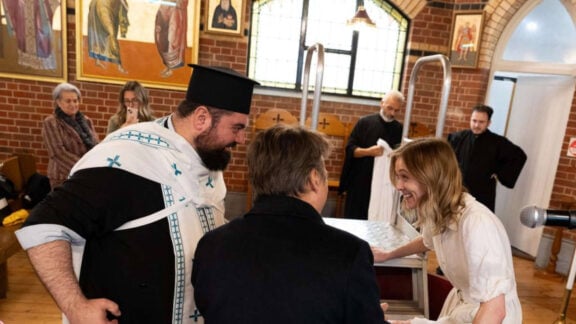The dilemma facing voters at the June 17 elections was not a choice between the euro or the drachma but between a unilateral rejection of the bailout or its revision in the realistic manner his party has proposed, Pasok leader Evangelos Venizelos said in a televised press conference for all the media on Sunday.
He stressed that the proposal put forward by Pasok was the only “realistic and responsible” proposal put on the table by any of the political parties, since none of the others had a comprehensive plan. He also underlined that the path of unilateral rejection would be “blind” and “catastrophic” for the country, which would then become the scapegoat of Europe and the international community.
According to Venizelos, this ‘blind’ path would also strengthen extremist elements and work into the hands of the “drachma faction”, which he identified as those investing in the prospect of buying up Greece cheaply, both in terms of its state-owned assets but also private property.
By contrast, he added, idea of a revision of the bailout conditions was already becoming accepted in Europe and an extension of the implementation of the bailout programme could be given until 2017.
“Everything that we propose is based on the provisions of the loan agreement and on the reduction of the debt, the recapitalisation of banks etc,” Pasok’s leader said, adding that he had proposed all of them on the day after he was elected to Pasok’s leadership in the six-point proposal that he had unveiled.
Venizelos claimed that the conservative New Democracy party and its allies would be unable to carry out such a revision because they belonged to the same conservative European group that had imposed the specific harsh austerity on Greece. Similarly, European radical parties would be unable to support or promote a revision since they were campaigning on policies that opposed any more lending to Greece.
The election victory of Francois Hollande as French president had opened up a “glimmer of hope” since only the socialists were able and willing to help Greece, Pasok’s leader added.
Concerning the result of the May 6 elections, Venizelos said that rage and rejection aimed at the established parties had predominated, while the next elections would be a time for a more positive vote and had to lead to a government that was mainly composed of the centre-left.
“The country needs a government that will unite the people and not divide them, that is able to revise the [loan agreements], that will revive the economy and restore Greece’s prestige in Europe and the world,” he emphasised.
During a tour of the northern Peloponnese on Saturday, with visits to Nafplion, Argos and other northeast Peloponnese towns, Venizelos had conveyed a message of “optimism and pride” to voters, and especially Pasok supporters.
He said the ‘harsh’ message of the May 6 elections was that Pasok needed to be radically changed in order to become the party that its founder Andreas Papandreou had first envisaged, while stressing that its position in the centre-left was not an “artificial product linked to political coincidence”.
Attacking the Coalition of the Radical Left (Syriza), which is now the second-largest party in the polls, Venizelos said that Syriza’s leader Alexis Tsipras had been shown up as inferior to the task before him during his tour of Europe, while Syriza was falling daily into contradictions and seemed to be imitating “the worst aspects of Pasok”.
He also criticised what he called an attempt to create a “barren political bipolarity” between a hardline, nationalist right on the one hand and a ‘supposed Left’ that he described as a “festival of populism, carelessness and irresponsibility”.
During a talk in Argos, he referred to the advantages for Greece as a result of the PSI bond write-down, noting that he was one of the few Greek finance ministers that had reduced rather than increasing Greece’s debt.
Source: AMNA








